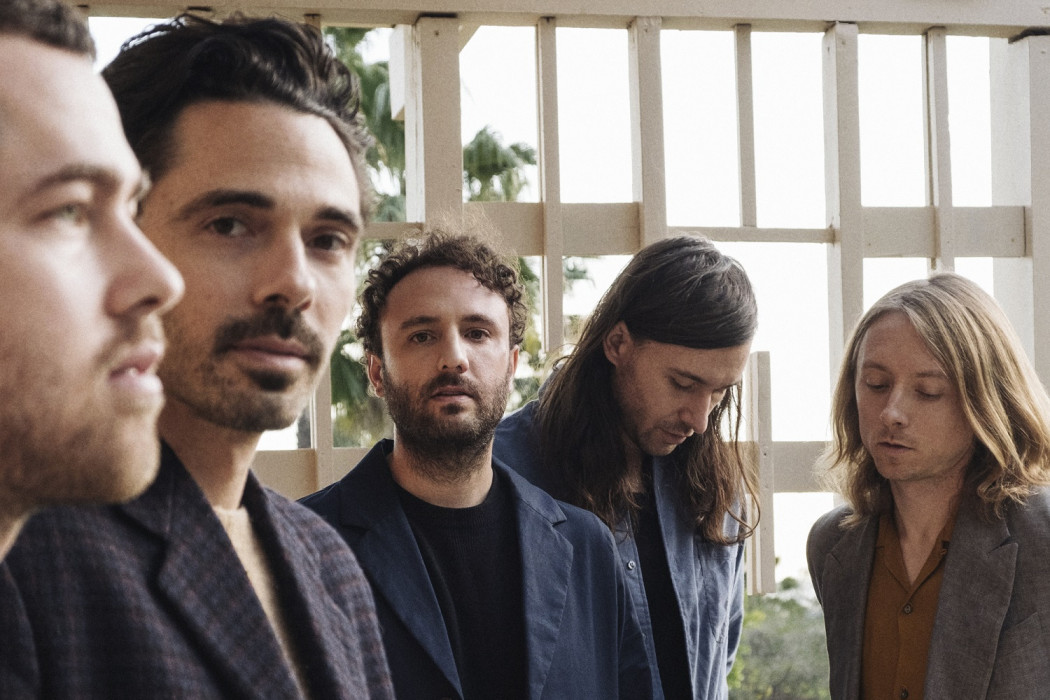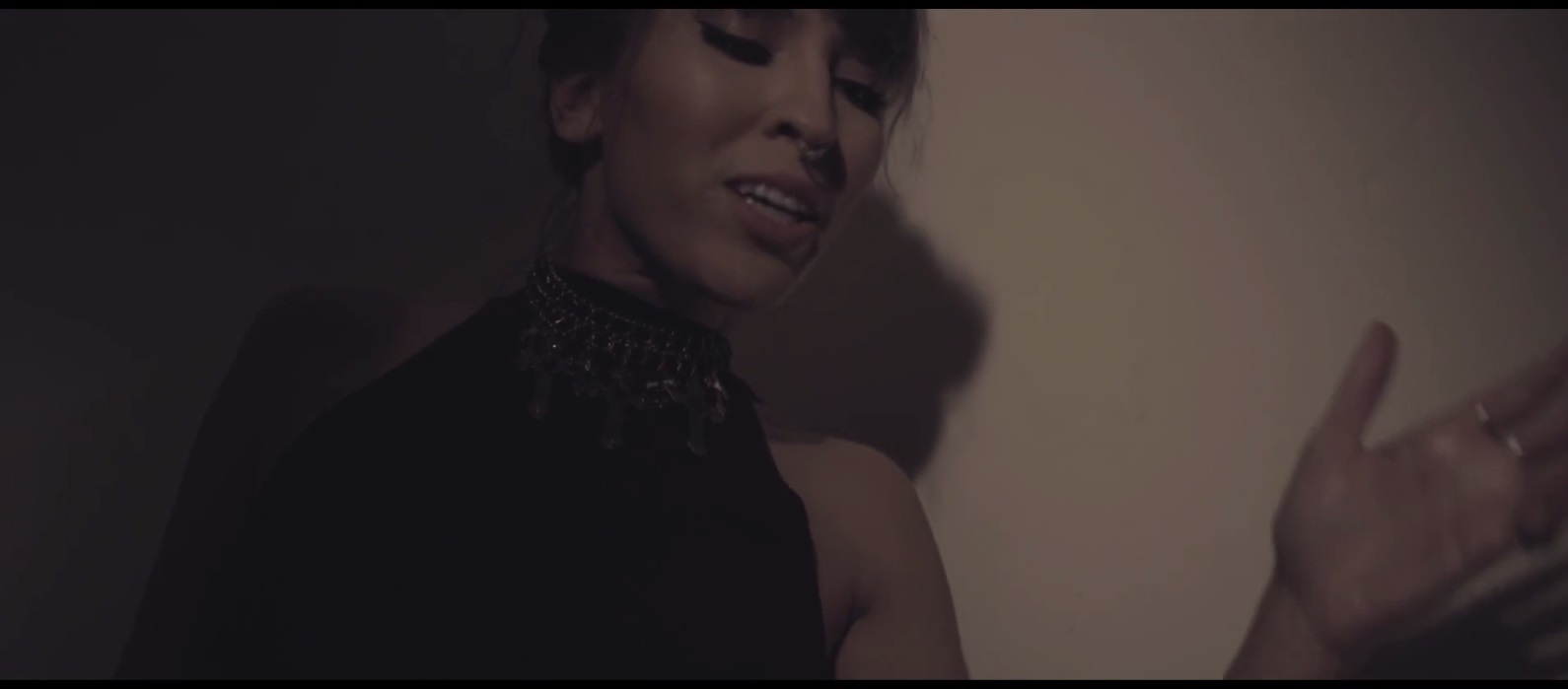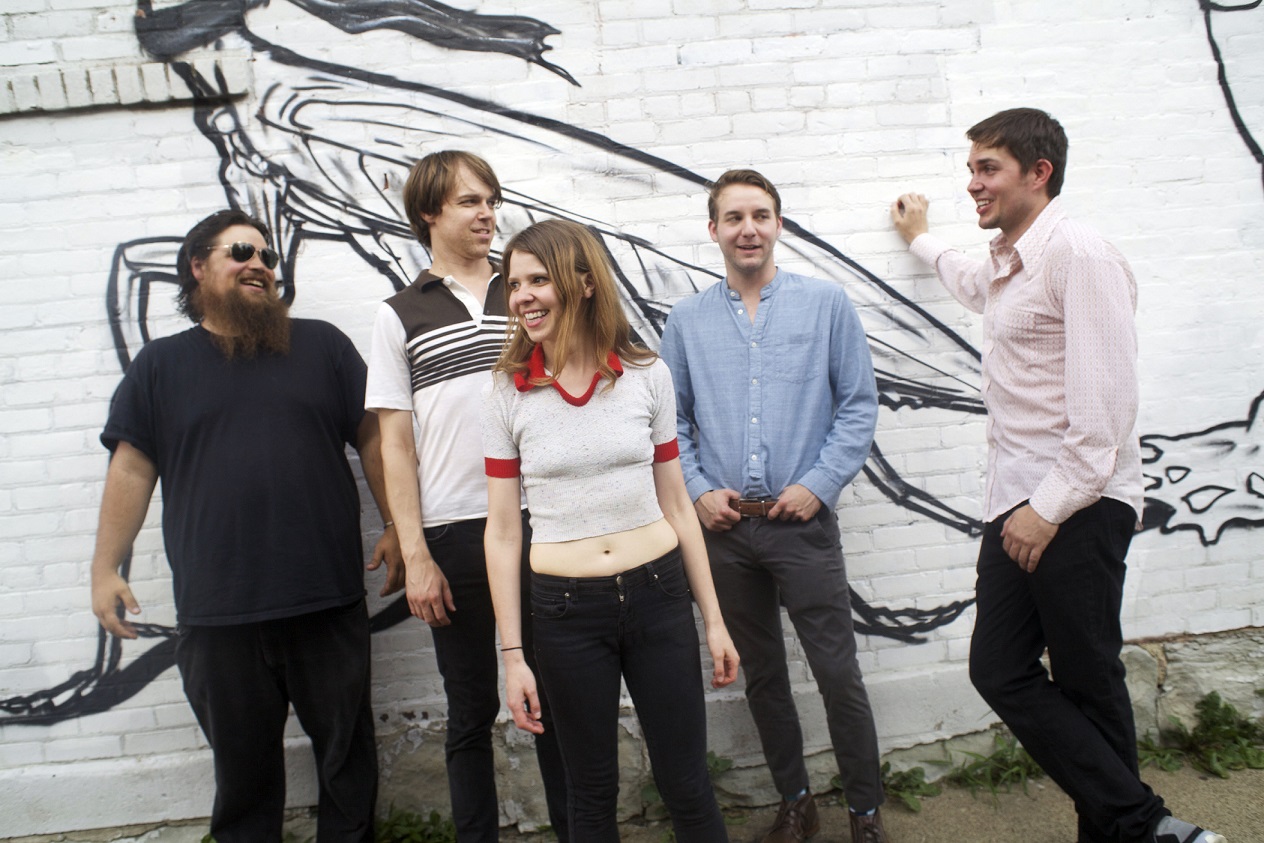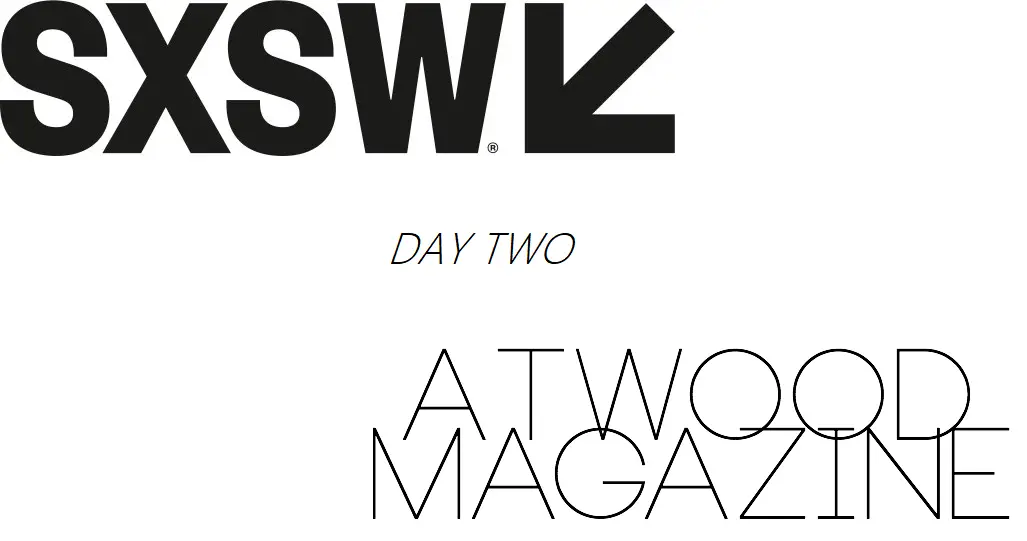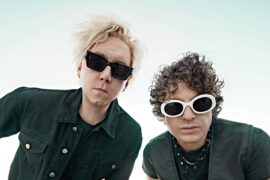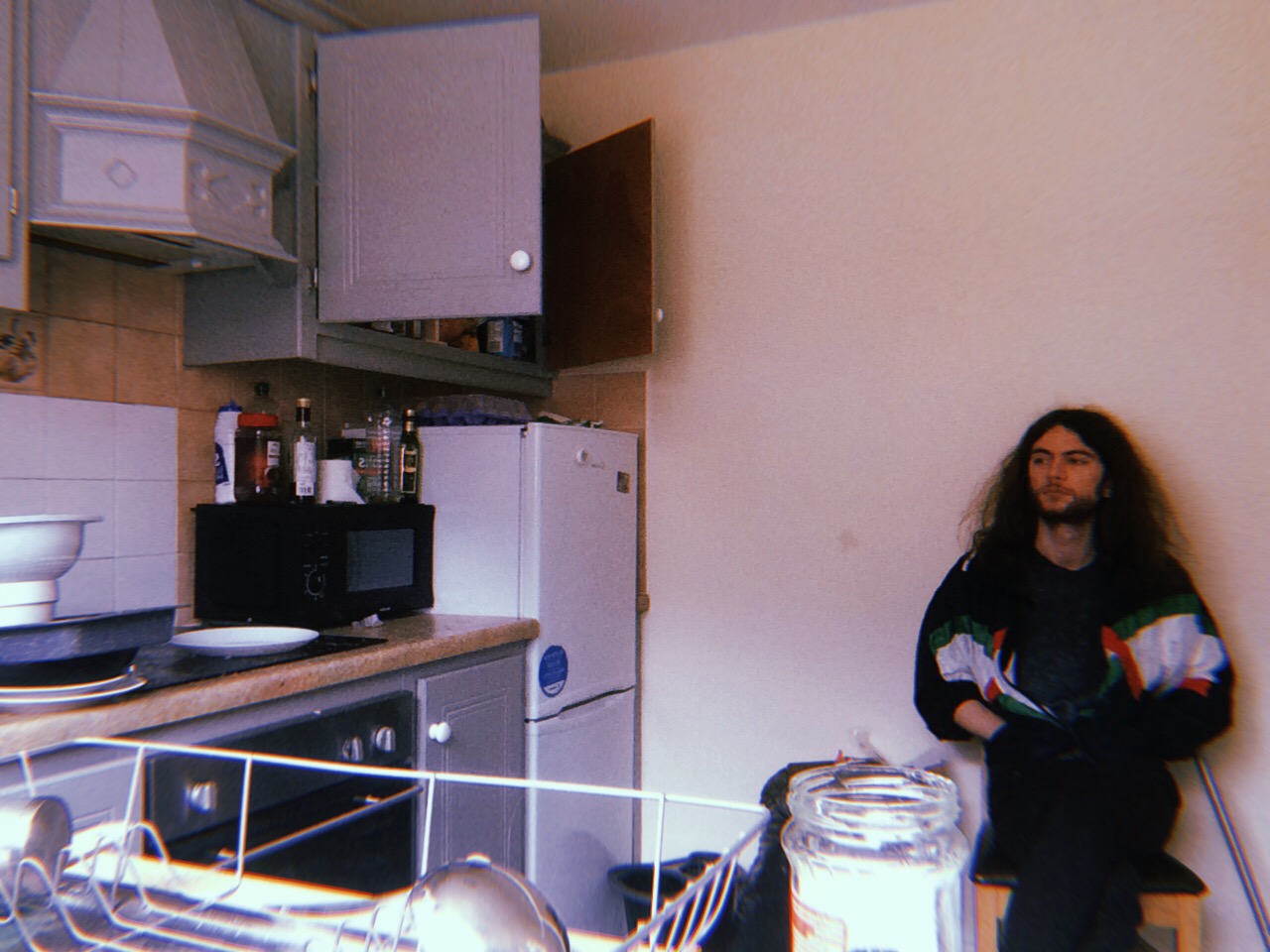With gratitude for their success, an appreciation for the rare gift of being in a band of equal parts with undeniable chemistry and trust, and some of Shawn Everett’s magical, musical fairy dust, Local Natives are reveling in a moment of unhindered authenticity on their fourth album ‘Violet Street’.
— —
Released on April 26, Violet Street marks a new chapter for indie rock band Local Natives after a decade of success in the industry and two years since their last album Sunlit Youth. These days, it’s an economic privilege and a rarity for a band to book a studio for a couple months to write an album. But that’s exactly what Local Natives did, and Shawn Everett’s LA studio on Violet Street is where they did it. Everett, known for his work with Alabama Shakes and Kacey Musgraves, may as well be considered a sixth member of the band as he played a major role in making Violet Street ⏤ accentuating the Local Natives’ mastery of making chaos read as beauty: A writing process that relies on every member’s unique perspective and incorporates production experimentation from start to finish yields a sound even band member Kelcey Ayer can’t believe they are capable of, and an album that distinguishes Local Natives among their genre and beyond.
“I never thought we could be a band that [could play a song like] “Café Amarillo” ⏤ this dark, smoky, LA jam that feels like it was played by a bunch of musicians who are better than us,” Ayer tells Atwood Magazine. “I definitely feel like I have imposter syndrome.”

Borrowing production techniques from Brian Eno and Talking Heads records, the 10 tracks on Violet Street maintain a quality the Local Natives have always done best: balancing alluring and uncomfortable sounds simultaneously. Layering clash-y explosions with relieving melodic resolutions. Taking simple textures and making brash, distorted patterns that somehow always find a way to make you love them.
We put a grit and an undercurrent of more grimy, city stuff into this album [more so] than others.
The 2019 album has been identified as “timeless” in practically every album review. While the label resonates as a nod to the caliber of the album, when you listen to it from start to finish you realize it’s full of time. It’s about direction ⏤ the unbreakable flow between tracks, the consistency of sound that makes the album a whole instead of an assembly of parts. Severe tempo shifts ⏤ heard, for example, in the first 15 seconds of “Garden of Elysian” ⏤ jolt you into various velocities.
Violet Street is the experience of sitting backseat three hours into a seemingly endless road trip.
It’s the moment where time splits into two ⏤ real time moving ahead out the window and time travel back into nostalgia and memory in your mind.
With gratitude for their success, an appreciation for the rare gift of being in a band of equal parts with undeniable chemistry and trust, and some of Shawn Everett’s magical, musical fairy dust, Local Natives are reveling in a moment of unhindered authenticity on Violet Street. Atwood Magazine got the chance to chat with Kelcey Ayer, one-fifth of Local Natives, before the band took the stage in Brooklyn mid-June. Read on to learn more about the process of writing Violet Street, the spinach to the band’s Popeye, the power of the collective, and lessons learned from someone who grew up in the music industry with his best friends as both business partners and artistic collaborators.
:: stream/purchase Violet Street here ::
A CONVERSATION WITH LOCAL NATIVES
Atwood Magazine: Pitchfork said that Violet Street maintains your sound as “genial, approachable, and optimistic” or in their other words “quintessential SoCal”. I'm curious, what does “quintessential SoCal” mean to you guys when it’s used to define your sound? And do you agree with the label?
Kelcey Ayer: Well, we are all from Southern California. So, I’d agree with that, but I’m not sure what makes quintessential SoCal music. I think it’s just that our location, where we are from, really influences our sound.
Did any other environment, space, or place beyond California, or even the West Coast, influence the album?
Ayer: I would say it really felt like a LA record for us. More so than any other record we’ve made. We spent the entire year at Shawn Everett’s studio—he produced the record⏤ and really didn’t leave for many months. We haven’t really done that for any other record. Gorilla Manor was mostly written in Orange County. Hummingbird we made in Montreal and Brooklyn. Sunlit Youth was kind of a worldly record. We were all over the place⏤ writing in Nicaragua and in Thailand and recording in those places as well. But for Violet Street, we kinda tried to put a grit and an undercurrent of more grimy city stuff into this one than other ones.
“Café Amarillo” – Local Natives
Why did you name the album Violet Street?
Ayer: That’s where the studio was at. Shawn’s studio. It felt like a very communal record in a way that’s most similar to our first record, I’d say. Because with Hummingbird we lost a member. So that record was kind of like playing with your arm cut off for a little bit. With Sunlit Youth we were doing so much production stuff that it had pluses and minuses for sure. Violet Street was the first time that we had our five members in a room to write a lot of this. We basically made it in one place. It was our home for a year it almost felt like our Gorilla Manor group. That’s why naming it Violet Street felt appropriate.
So many people are calling Violet Street timeless. What does timeless mean to you and how do you think it applies to your sound?
Ayer: Uhhh… how about… without time? I guess to me it’s when you put something on and it doesn’t matter when or where, it just kind of like exists. It’s really hard to write something that really truly feels timeless and that’s really not for us [the band] to say. All I can say is we like when we can access a broad range of feelings. If I’m trying to psychoanalyze, we are a broad range of people with different feelings, so there are five different perspectives contributing to these songs. Ryan and Taylor and I write the songs but we bring them to the band and we all flesh them out together. It’s possible that it is this melding of five different minds is what creates something that is a bit more zoomed out. I think if what we lack is extreme perspective of one person’s mind I think we gain in picking the best parts of five minds. Everyone is into different genres of music and styles and eras and that possibly feeds into a timeless product.

Some of you guys went off and did your own thing for a bit in 2017⏤ was there a catalyst for the break? How did exploring solo projects prior to recording Violet Street influence the record? And how did you guys know it was time to come back together to record this album?
Ayer: I was the only one who did solo stuff and there was no break. My stuff was specific to my own personal journey rather than the band’s. I found little bits of time to finish my record and I put it out while we were playing shows and doing other writing stuff. My solo project definitely made me feel much more appreciative of—and allowed me to take fuller advantage of⏤ to have four other super talented artists to write with. It was humbling and a very valuable experience that put me in a really nice headspace for Violet Street.
Did you approach writing Sunlit Youth and Violet Street in significantly different ways?
Ayer: Sunlit Youth contextually came after a very dark and heavy album for us so I think reverting back to a lighter, more fun pop kinda thing made sense at the time. We decided to work on different production styles and weirder sounds. I think that Sunlit Youth found success in that.
When we got to Violet Street, being older and having the perspective to realize how lucky we are to still be a band and still be able to make music in this way⏤ you know, it’s really not a thing people are doing too much these days⏤ to focus on this gift that we have, our ability to make music together in a room. So that’s how we approached Violet Street. And another huge difference is that we actually didn’t demo anything out—you know that’s a difference between Sunlit Youth, that’s a difference between Violet Street and all of our records. Every record besides Violet Street we demoed out songs before we went into the studio, it was partially because we didn’t want to waste studio time but also it gives you a sense of control that is nice. It feels like you’re prepared when you go in the studio—like everyone has their parts and you can go in and lay them down.
“When Am I Gonna Lose You” – Local Natives
There’s a lot going on in terms of sound on this record. You’ve really explored a wide range. If you had to choose one instrument or sound or texture to characterize as most particular to this album what would it be?
Ayer: This record would not have been anything without Shawn. He is a creative genius on par with Brian Eno and will be getting his recognition very soon if he doesn’t have it already. He pushed us as a band to really elevate our sound to places we didn’t ever think we could go. We hadn’t really even decided to start recording Violet Street but we booked like 10 days with Shawn in Nov 2017. Three days in we were recording the song “Tap Dancer” and Shawn, without asking anyone, will just start like fucking with the music that you are making. We had recorded scratch vocals and like a bass track and we were in the other room like arguing about lyrics or something and Shawn comes in after an hour and is like “hey, I did something. I want you to hear it and let me know what you think” So we walk into the room and he said this sentence that didn’t make any sense when we first heard it.. he’s like “hey, I took both of the choruses that you guys recorded and squashed them into a 10 second loop” and he plays it. It’s like this gargled alien language and all five of us are in there just jaws-dropped. It was the coolest, weirdest, most beautiful thing that we’d ever heard. It’s very hard for us all to agree 100 percent but then right after that we huddled outside and everyone was in agreement to have Shawn mix and produce the whole record. It was the quickest decision we ever made. We take forever to make decisions but we were unequivocally like this guy is our guy. Shawn was like our spinach and to our Popeye.
“Garden of Elysian” reminds me of a western film and I like the way that vibe plays with the expectation of Eden that I pull from the title. What was the process of creating this song?
Ayer: That’s amazing that you mention hearing a Western. We had talked about Ennio Morricone, he composed a lot of vibey, spaghetti western music and Quentin Tarantino uses him a lot and ⏤ yeah, so that’s rad. I guess we had some sort of vibe to create that song in that way but it felt like a very, very simple song that needed a special angle on it so we got some strings in there and some overtones to kinda swap over the whole song so it’s not just a straight up simple ballad. But the beginning of that song was really a big product of we haven’t really done that much stuff to tape in the past — we recorded stuff to tape but we’ve never experimented with tape and Shawn’s all about that so he opened this whole world.
As artists who have been in the industry for years, have you found that this sentiment of experience dulling or revealing negative aspects of things that were once magical applies? Is it difficult to negotiate the industry as a band while also reaching such milestones in your personal lives?
Ayer: It definitely is difficult. Since this is our careers and our lives we are constantly assessing all kinds of aspects of it. When you’re young and you’re wide-eyed and you’re just trying to hit all these milestones ⏤ you think, “Oh when I hit this it will be the pinnacle it’s going to be the thing.” Now we are 10 years in and we’ve hit a lot of the things that we never thought we would’ve when we were 19 and it’s not it. It’s not the end and it’s not like okay let’s hang up our hats you know we are happy. It’s an interesting lesson to learn and you can only learn it by getting older.

So many of these songs explore relationships in various capacities. What would you guys say is the key to your relationship with each other as band members?
Ayer: I think we are lucky enough to come from very supportive families so we all have a very nice foundation to build off of. We put a huge priority on communication and always checking in on each other. It’s one of the most intense relationships I’ve ever had⏤ we are best friends and business partners and collaborators and creative artists together. I always joke with my wife that she’s my mistress. It’s just not different than any relationship you’ve ever been in. If you let things go for too long you’re going to fuck it up and if you don’t keep lines of communication open and don’t try to have empathy then it’s going to fall apart. Luckily all five of us have subscribed to this way of thinking that just like the only way that we are going to keep this going is if we are really good friends so we just figure out how to keep doing that.
— —
:: stream/purchase Violet Street here ::
— — — —
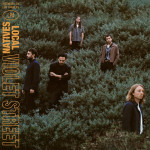
Connect to Local Natives on
Facebook, Twitter, Instagram
Discover new music on Atwood Magazine
? © Jonathan Chu

